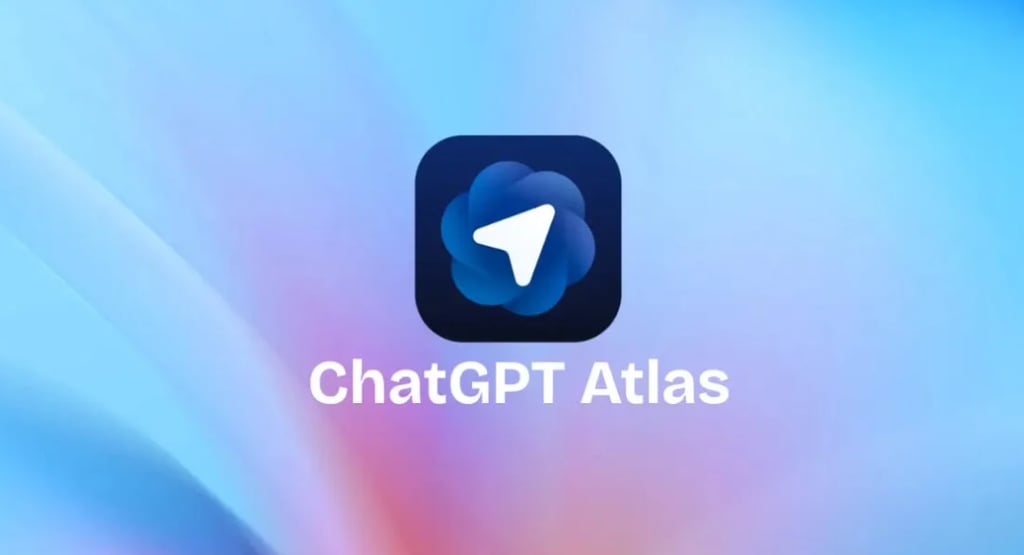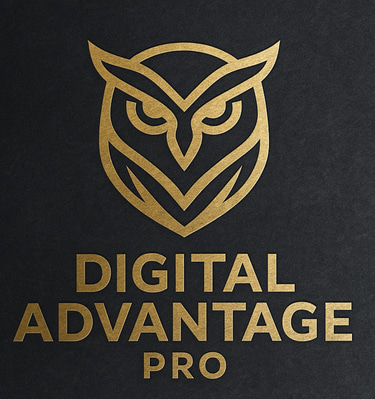OpenAI's Atlas: AI-Driven Browser Challenging Google
OpenAI launched Atlas, a ChatGPT-powered browser for macOS with AI agent mode, personalized browsing, and internet navigation, potentially challenging Google Chrome's dominance while raising privacy concerns.
LLMAIARTIFICIAL INTELLIGENCETECHNOLOGY
Eric Sanders
10/22/20254 min read


Atlas: OpenAI’s New ChatGPT-Powered Browser Set to Disrupt Browsing as We Know It
If you think Google Chrome is untouchable as the king of web browsers, it’s time to think again. OpenAI just dropped Atlas, a ChatGPT-powered browser designed specifically for macOS. This isn’t just another browser with fancy AI chat integrations slapped on top. Atlas bets big by blending personalized browsing, an AI agent mode, and seamless internet navigation into a single experience that’s impossible to ignore. But the real question is—are we ready to hand over more of our digital lives to AI-powered tools, especially when privacy is already on shaky ground?
A New Player Enters the Browser Arena
Atlas is the type of innovation that feels inevitable once you see it but revolutionary when you realize it changes the game fundamentally. Powered by the very AI model that sparked a revolution in human-computer dialogue, Atlas puts ChatGPT right at the heart of your browser. Imagine launching your browser not just to search the web but to engage in a conversation that guides you, understands your preferences, and helps you accomplish tasks more intuitively than ever before.
OpenAI’s vision here seems laser-focused: move beyond passive browsing and evolve into a dynamic, interactive experience powered by AI agents that can multitask and navigate the internet for you. This means Atlas doesn’t just retrieve information—it understands context, personalizes results, and offers streamlined interactions that could challenge Chrome’s long-reigning convenience.
Personalization That Goes Deeper
One of Atlas’ standout features is its personalized browsing mode. While Chrome already tracks your habits and preferences, OpenAI’s browser promises a more tailored approach driven by AI. This doesn’t translate to creepy ad targeting; instead, it’s about having an assistant that learns what you want in real-time.
For example, if you’re researching travel options, Atlas can remember your preferred destinations, pricing thresholds, and even suggest related activities you hadn’t considered. It’s like having a knowledgeable companion who helps you cut through the noise of countless search results. Instead of you scrolling endlessly, the AI creates a curated experience based on your evolving needs.
Atlas also introduces an “AI agent mode,” essentially a browser agent that can autonomously navigate the web for complex queries—booking a flight, summarizing extensive reports, or even helping write emails grounded in real-time information. This is browsing that actually saves you time and mental effort.
Breaking Away From Old Browser Habits
Google Chrome has largely monopolized browsing for years, but it’s not without flaws. Heavy resource consumption, opaque data collection, and a somewhat stagnant user experience have frustrated power users and casual browsers alike. Atlas steps into this gap with renewed promise.
In fact, OpenAI highlights how the integration of ChatGPT inside the browsing experience can fundamentally shift our relationship with information on the web. Rather than juggling tabs and endless clicks, Atlas guides you with AI insights and automations that turn browsing into an efficient, almost conversational process.
But this isn’t just about shiny new features. It’s about rethinking what a browser should be:
- Interactive companion rather than passive tool
- Personalized insights versus generic search results
- AI-powered multitasking instead of tedious manual searching
It’s a bold reimagination of everyday browsing.
The Elephant in the Room: Privacy and Trust
With great AI power comes great responsibility—and skepticism. Atlas shines in its promise, but it also raises serious questions around data privacy and security. OpenAI’s technology depends on collecting and analyzing user data to deliver personalized experiences, but this delicate balance between utility and privacy is still a minefield.
Critics are quick to point out the expanded surface area for data collection when you centralize AI, search, and personal information inside a single browser. How is data stored? How customizable are the privacy settings? Can users opt out of data collection without crippling the experience?
These are not trivial questions. The devil will be in the details as users start adopting the platform. OpenAI is aware of the stakes, but ultimately, to compete with Chrome’s vast ecosystem—and Google’s privacy measures—they’ll need to deliver strong trust signals and transparent policies.
What We Can Learn from Atlas’s Approach
Atlas isn’t just a product release; it’s a bellwether for where web browsing and AI are heading. If you’re someone embedded in the digital ecosystem—whether as a writer, researcher, or everyday user—there are tangible lessons here:
- Embrace AI integration not as a gimmick but as a genuine productivity tool. Getting comfortable with conversational AI embedded in your workflow could save you hours in the long run.
- Demand transparency and control over your data. As browsers become smarter, so do the methods for data collection. Guarding your privacy should be non-negotiable.
- Reimagine how you search. Instead of typing keywords and sifting through pages, start thinking about how AI agents can tailor and manage your queries.
- Keep an eye on new tech that challenges entrenched platforms. Chrome’s dominance isn’t guaranteed forever. Understanding emerging tools like Atlas can give you a head start in adapting.
A Glimpse Into the Browser of the Future
There’s something quietly thrilling about Atlas because it signals a shift from simply interfacing with the web to being co-piloted by AI. This could redefine productivity and information discovery in explosive ways.
Yet, the road ahead isn’t guaranteed smooth. Adoption hurdles, trust and privacy concerns, and integration issues remain. Atlas arrives at a critical inflection point where the browser isn’t just a window to the internet but a dynamic AI-powered workspace.
If OpenAI gets this right, the implications ripple across countless industries and everyday tasks. Imagine a workday where your browser anticipates your needs, filters distractions, and helps you synthesize information in real-time—without you feeling like you’re wrestling with complex tools.
So, What Next?
Will you be the person to try Atlas out first, diving into AI-enabled browsing and leading the charge away from traditional search and scrolling? Or will you wait on the sidelines to see if privacy concerns and early kinks smooth out?
More importantly, how do you want your relationship with the internet to evolve? Do you want to passively scan endless pages, or have a “browser assistant” that actually understands what you want and helps you get it done faster?
Time will tell if Atlas dethrones Chrome or becomes an experimental footnote. But one thing is clear: the future of browsing won’t look like the past. OpenAI’s Atlas may just be the first glimpse of a smarter, more personalized, and arguably more human way to connect with the endless universe of the web.
What would happen if your browser no longer just showed you information but thought alongside you?
Efficiency
Transform your workflows and reclaim your time.
Contact Us
Need A Custom Solutions? Lets connect!
eric.sanders@thedigiadvantagepro.com
772-228-1085
© 2025. All rights reserved.
